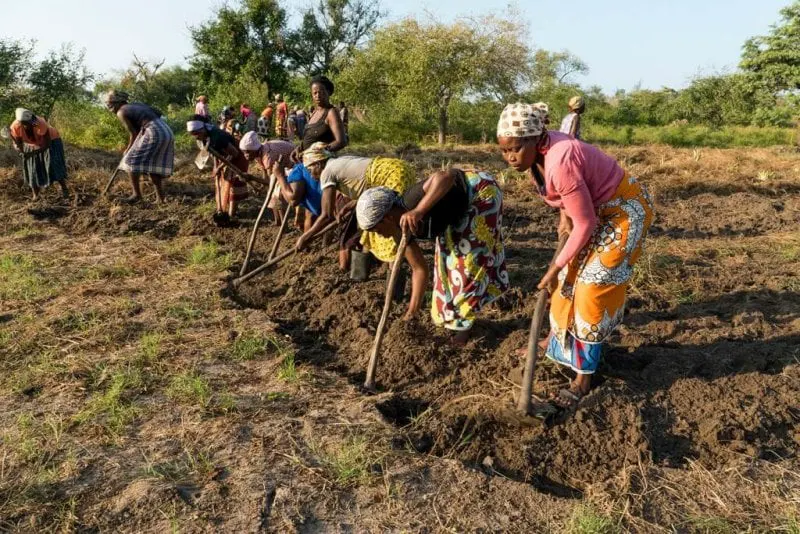Viewpoint — ‘It is wrong to leave Africans at the mercy of organic farming’: Western activists should not force ‘unproductive agroecology’ on developing farmers
Viewpoint — ‘It is wrong to leave Africans at the mercy of organic farming’: Western activists should not force ‘unproductive agroecology’ on developing farmers


Because of GM technology, crop-protection tools, and more, farmers are growing more food and cotton on less land than ever before. This is an incredible boon for humanity as well as the environment. Never before in history has it been easier for us to meet the basic needs of people everywhere. As we continue to take advantage of sound science and develop new technologies, we’re going to improve on what is already a good situation.
Unfortunately, many of the advocates of “agroecology,” threaten this opportunity. They seek to persuade farmers and regulators in the developing world to reject the 21st-century technologies that are essential to food security and economic resilience.
…
“It is wrong to leave Africans at the mercy of organic farming, which is nearly impossible in a tropical climate where locusts, fall armyworm, Tuta absoluta, and other pests ravage crops,” [said Rwandan farmer Pacifique Nshimiyimana.]
Nassib Mugwanya, an Ugandan researcher who is earning his doctorate at North Carolina State, has called agroecology “a dead end” for Africa and warns that it will “trap farmers in the poverty of their current unproductive farming practices.”
I’m an advocate of choice, not coercion. If farmers want to adopt agroecology, for whatever reason, then they should enjoy this freedom.
Read the original post

 | Videos | More... |

Video: Nuclear energy will destroy us? Global warming is an existential threat? Chemicals are massacring bees? Donate to the Green Industrial Complex!
 | Bees & Pollinators | More... |

GLP podcast: Science journalism is a mess. Here’s how to fix it

Mosquito massacre: Can we safely tackle malaria with a CRISPR gene drive?

Are we facing an ‘Insect Apocalypse’ caused by ‘intensive, industrial’ farming and agricultural chemicals? The media say yes; Science says ‘no’
 | Infographics | More... |

Infographic: Global regulatory and health research agencies on whether glyphosate causes cancer
 | GMO FAQs | More... |

Why is there controversy over GMO foods but not GMO drugs?

How are GMOs labeled around the world?

How does genetic engineering differ from conventional breeding?
 | GLP Profiles | More... |

Alex Jones: Right-wing conspiracy theorist stokes fear of GMOs, pesticides to sell ‘health supplements’




 Trust issues: What happens when therapists use ChatGPT?
Trust issues: What happens when therapists use ChatGPT? Fighting deforestation with CO2: Biotechnology breakthrough creates sustainable palm oil alternative for cosmetics
Fighting deforestation with CO2: Biotechnology breakthrough creates sustainable palm oil alternative for cosmetics Viewpoint: Video — Big Solar is gobbling up productive agricultural land and hurting farmers yet providing little energy or sustainabilty gains
Viewpoint: Video — Big Solar is gobbling up productive agricultural land and hurting farmers yet providing little energy or sustainabilty gains Viewpoint — Fact checking MAHA mythmakers: How wellness influencers and RFK, Jr. undermine American science and health
Viewpoint — Fact checking MAHA mythmakers: How wellness influencers and RFK, Jr. undermine American science and health California, Washington, Oregon forge immunization alliance to safeguard vaccine access against federal undermining
California, Washington, Oregon forge immunization alliance to safeguard vaccine access against federal undermining 30-year-old tomato line shows genetic resistance to devastating virus
30-year-old tomato line shows genetic resistance to devastating virus The free-range chicken dilemma: Better for birds, but with substantial costs
The free-range chicken dilemma: Better for birds, but with substantial costs ‘You have to treat the brain first’: Rethinking chronic pain with Sanjay Gupta
‘You have to treat the brain first’: Rethinking chronic pain with Sanjay Gupta
